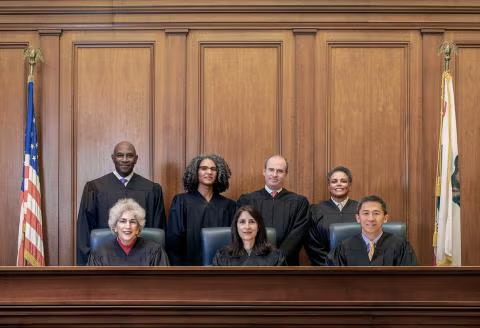Landmark Supreme Court Decision Expands Whistleblower Protections
In a major victory for whistleblowers, the U.S. Supreme Court recently ruled in favor of Trevor Murray, a former UBS employee who was fired after reporting what he believed to be illegal activity. The U.S. Supreme Court’s decision in Murray v. UBS expands protections for whistleblowers under the Sarbanes-Oxley Act (SOX), making it easier for employees to challenge retaliatory termination.
What the Case Was About
Trevor Murray was a vice president at UBS who reported concerns about potential accounting irregularities to his superiors. After raising these concerns, Murray was fired. He sued UBS, alleging that he was fired in retaliation for his whistleblowing activity, in violation of SOX.
The lower courts ruled in favor of UBS, finding that Murray had not shown that the company acted with “retaliatory intent” in firing him, which the lower court likened to discriminatory animus. However, the U.S. Supreme Court reversed this decision.
The Supreme Court’s Ruling
The U.S. Supreme Court held that Murray did not need to prove that UBS acted with “retaliatory intent” when they fired him. The SOX law did not contain any language requiring proof of “retaliatory intent.” Instead, Murray only needed to show that his whistleblowing activity was a “contributing factor” in his termination. The employer’s alleged discriminatory animus is one way for Murray to show that his whistleblowing was a “contributing factor” in his termination, but “it is not the only way” nor is it a required way, the Court ruled.
If Murray could make his “contributing factor” showing, the U.S. Supreme Court ruled, then the burden would shift to the employer to prove by “clear and convincing” evidence that the employer would have taken the same action against Murray in the absence of him blowing the whistle.
This is a significantly lower bar for employees to meet in whistleblower retaliation cases.
The Court’s decision was based on the statutory language of SOX, which prohibits discrimination against employees “because of” their protected activity. The Court also considered the purpose of SOX, which is to encourage whistleblowing by protecting employees from retaliation.
What This Means for Employers and Employees
The Supreme Court’s decision in Murray v. UBS is an important victory for whistleblowers. It makes it easier for employees to challenge retaliatory termination and recover damages if they are successful.
For Employers:
- This decision means that employers need to be more careful about how they treat employees who raise concerns about potential wrongdoing. Even if an employer does not intend to retaliate against a whistleblower, they can still be liable if the employee’s whistleblowing activity is a contributing factor in their termination.
- Employers should have clear and well-publicized policies and procedures for reporting suspected wrongdoing. These policies should encourage employees to come forward with concerns without fear of retaliation.
- Employers should also train their managers on how to handle whistleblower complaints. Managers should be aware of the law and how to avoid taking any actions that could be construed as retaliation.
For Employees:
- This decision is a reminder that employees have the right to report suspected wrongdoing without fear of retaliation. If you believe that you have witnessed illegal activity, you should report it to your supervisor, HR, or a government agency.
- If you are fired after reporting suspected wrongdoing, you should consult with an attorney to discuss your rights. You may have a claim for retaliation under SOX or other laws.
You can read the U.S. Supreme Court’s opinion in Murray v. UBS here.
Insights
OUR BLOG


